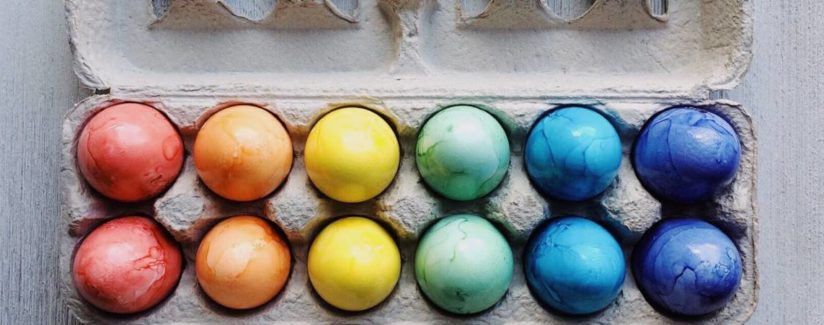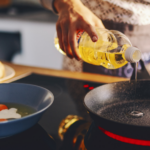
Is it Safe to Eat Easter Eggs?
Yes! Easter eggs (aka hard-boiled eggs) can be a delicious snack – but it is important to follow food safety guidelines.
If you’re having an Easter egg hunt, do not hide the eggs on chemically treated lawns, potted plants or in pet areas, such as a dog house. The Egg Safety Center cautions that contaminants from these areas could adhere to the shell of the egg.
Hard-boiled eggs can be left out of the refrigerator for up to two hours, but after that, should be discarded. If an egg has a crack it should be discarded.
Best bet? Prepare one batch of hard-boiled eggs for eating and dye another batch for hiding that can be discarded.
Some more food facts about eggs:
- There’s no difference in the nutrition between white and brown eggs. White eggs are laid by chickens with white feathers and white ear lobes, while brown eggs are laid by red-feathered chickens with red ear lobes. Chickens with red feathers are larger in body size and require more feed which is why brown eggs are more expensive on store shelves.
- Hens typically lay one egg every day. A double yolk occurs when the hen ovulates twice and it ends up in the same egg.
- When hard boiling eggs, very fresh eggs can be hard to peel. For best results, buy eggs about a week before you plan to boil them. The video below shows easy step-by-step directions on how to boil eggs.
- Egg yolks are one of the few foods that naturally contain vitamin D. One large egg contains the protein equal to that of one ounce of lean meat, poultry, fish or seafood.

























